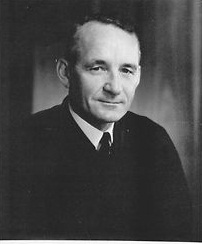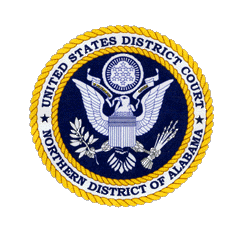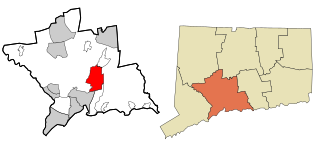Related Research Articles
In United States labor law, a hostile work environment exists when one's behavior within a workplace creates an environment that is difficult or uncomfortable for another person to work in, due to illegal discrimination. However, a working environment that is unpleasant and frightening for the victim due to sexual advances that have been denied by the victim, is what constitutes hostile work environment sexual harassment. Common complaints in sexual harassment lawsuits include fondling, suggestive remarks, sexually-suggestive photos displayed in the workplace, use of sexual language, or off-color jokes. Small matters, annoyances, and isolated incidents are usually not considered to be statutory violations of the discrimination laws. For a violation to impose liability, the conduct must create a work environment that would be intimidating, hostile, or offensive to a reasonable person. An employer can be held liable for failing to prevent these workplace conditions, unless it can prove that it attempted to prevent the harassment and that the employee failed to take advantage of existing harassment counter-measures or tools provided by the employer.

The U.S. Equal Employment Opportunity Commission (EEOC) is a federal agency that was established via the Civil Rights Act of 1964 to administer and enforce civil rights laws against workplace discrimination. The EEOC investigates discrimination complaints based on an individual's race, color, national origin, religion, sex, age, disability, genetic information, and retaliation for participating in a discrimination complaint proceeding and/or opposing a discriminatory practice.

Jenson v. Eveleth Taconite Co., 130 F.3d 1287, was the first class-action sexual harassment lawsuit in the United States. It was filed in 1988 on behalf of Lois Jenson and other female workers at the Eveleth Taconite mine in Eveleth, Minnesota on the state's northern Mesabi Range, which is part of the Iron Range.

The Center for Constitutional Rights (CCR) is a progressive non-profit legal advocacy organization based in New York City, New York, in the United States. It was founded in 1966 by Arthur Kinoy, William Kunstler and others particularly to support activists in the implementation of civil rights legislation and to achieve social justice.
The Antipornography Civil Rights Ordinance is a name for several proposed local ordinances in the United States and that was closely associated with the anti-pornography radical feminists Andrea Dworkin and Catharine A. MacKinnon. It proposed to treat pornography as a violation of women's civil rights and to allow women harmed by pornography to seek damages through lawsuits in civil courts. The approach was distinguished from traditional obscenity law, which attempts to suppress pornography through the use of prior restraint and criminal penalties.
In United States constitutional law, a suspect classification is a class or group of persons meeting a series of criteria suggesting they are likely the subject of discrimination. These classes receive closer scrutiny by courts when an Equal Protection claim alleging unconstitutional discrimination is asserted against a law, regulation, or other government action, or sometimes private action. When a law or government action affects a group that falls under a "suspect classification," courts apply the strict scrutiny standard in reviewing the constitutional validity of a law or action.

Hepting v. AT&T, 439 F.Supp.2d 974, was a class action lawsuit argued before the United States District Court for the Northern District of California, filed by Electronic Frontier Foundation (EFF) on behalf of customers of the telecommunications company AT&T. The plaintiffs alleged that AT&T permitted and assisted the National Security Agency (NSA) in unlawfully monitoring the personal communications of American citizens, including AT&T customers, whose communications were routed through AT&T's network.
Sexual orientation discrimination is discrimination based on sexual orientation and/or sexual behaviour.

Miles Welton Lord was a United States district judge of the United States District Court for the District of Minnesota.
Geduldig v. Aiello, 417 U.S. 484 (1974), was an equal protection case in the United States in which the Supreme Court of the United States ruled on whether unfavorable treatment to pregnant women could count as sex discrimination. It held that the denial of insurance benefits for work loss resulting from a normal pregnancy did not violate the Fourteenth Amendment. The California insurance program at issue did not exclude workers from eligibility based on sex but excluded pregnancy from a list of compensable disabilities. The majority found that even though only women would be directly affected by the administrative decision, the classification of normal pregnancy as non-compensable was not a sex-based classification and so the court would defer to the state so long as it could provide a rational basis for its categorization.

Association of Christian Schools International v. Stearns, 678 F. Supp. 2d 980, was filed in spring 2006 by Association of Christian Schools International against the University of California claiming religious discrimination over the rejection of five courses as college preparatory instruction. On August 8, 2008, Judge S. James Otero entered summary judgment against plaintiff ACSI, upholding the University of California's standards.
The Women's Equity Action League, or WEAL, was a United States women's rights organization founded in 1968 with the purpose of addressing discrimination against women in employment and education opportunities. Made up of conservative women, they used the court system to facilitate enforcing existing legislation. They are most known for filing cases against higher education institutions across the United States to address discriminatory hiring and promotion practices. They also successfully litigated over help-wanted advertisements being sex-segregated, extending military spousal benefits to husbands of female service personnel, and over the extent to which the Department of Defense could involve itself in the lives of military spouses.

Tompkins v. Alabama State University, 15 F. Supp. 2d 1160, was a legal case involving affirmative action, that was decided in a United States Federal Court.

DeMarco v. Holy Cross High School 4 F.3d 166 was a discrimination case brought under the Age Discrimination in Employment Act of 1967 ("ADEA"). The appellant, Guy DeMarco, was released from employment before his eligibility for tenure at the age of forty-nine. Holy Cross High School argued that it was not subject to ADEA laws and that if it were, this case against it violated the Free Exercise Clause and the Establishment Clause of the First Amendment. The School also argued that DeMarco had failed to utilize the administrative remedies available.
Wal-Mart v. Dukes, 564 U.S. 338 (2011), was a United States Supreme Court case in which the Court ruled that a group of roughly 1.5 million women could not be certified as a valid class of plaintiffs in a class-action lawsuit for employment discrimination against Walmart. Lead plaintiff Betty Dukes, a Walmart employee, and others alleged gender discrimination in pay and promotion policies and practices in Walmart stores.
The following timeline represents formal legal changes and reforms regarding women's rights in the United States except voting rights. It includes actual law reforms as well as other formal changes, such as reforms through new interpretations of laws by precedents.
Title IX of the United States Education Amendments of 1972 prohibits discrimination "on the basis of sex" in educational programs and activities that receive financial assistance from the federal government. The Obama administration interpreted Title IX to cover discrimination on the basis of assigned sex, gender identity, and transgender status. The Trump administration determined that the question of access to sex-segregated facilities should be left to the states and local school districts to decide. The validity of the executive's position is being tested in the federal courts.

Kimberly Hively v. Ivy Tech Community College, 853 F.3d 339, was a decision of the United States Court of Appeals for the Seventh Circuit in which the Court held that discrimination on the basis of sexual orientation violates Title VII of the Civil Rights Act of 1964. The ruling made the Seventh Circuit the first federal appeals court to find that sexual orientation is a protected class under the Civil Rights Act of 1964.
Jean Y. Jew was an American academic who was a tenured professor at the University of Iowa College of Medicine. She retired in 2010.

North Haven Bd. of Educ. v. Bell, 456 U.S. 512 (1982), was a U.S. Supreme Court decision where the Court ruled that Title IX protections against sex-based discrimination applied to school employees as well as students within a federal funded education setting. Critically, this decision was made in contrast to many previous court rulings on the application of Title IX to individuals other than students. The decision of North Haven Board of Education v. Bell ushered in an understanding of Title IX that protects anyone interacting with the school system including “parents and guardians, students, applicants and employees." The employee protection of Title IX extends to both full and part-time faculty, dictating that equal pay must be given to men and women for the same work.
References
- ↑ Glazer-Raymo, Judith (1999). Shattering the Myths: Women in Academe . Johns Hopkins University Press. p. 94.
- ↑ Widener, Andrea (March 7, 2023). "How Shyamala Rajender fought back against discrimination". Chemical & Engineering News . American Chemical Society. 101 (9). ISSN 0009-2347 . Retrieved 11 June 2023.
- ↑ Clark, VèVè; Garner, Shirley Nelson; Higonnet, Margaret; et al., eds. (1996). Antifeminism in the academy . Routledge. pp. 210–211.
- ↑ Rajender v. University of Minnesota, 546F. Supp.158 , 160–61( D. Minn. 1982).
- ↑ Rajender, 546 F. Supp. at 161. https://conservancy.umn.edu/handle/11299/100392
- ↑ Kohlstedt, Sally G.; Fischer, Suzanne M. (2009). "Unstable Networks Among Women in Academe: the Legal Case of Shyamala Rajender". Centaurus. 51 (1): 37–62. doi:10.1111/j.1600-0498.2008.00131.x. PMID 19618550.
- ↑ Leap, Terry L. (1993). Tenure, discrimination, and the courts. Cornell University. p. 186.
- ↑ Shipp, E. R. (1987-11-08). "The Litigious Groves of Academe". The New York Times. ISSN 0362-4331 . Retrieved 2019-08-30.